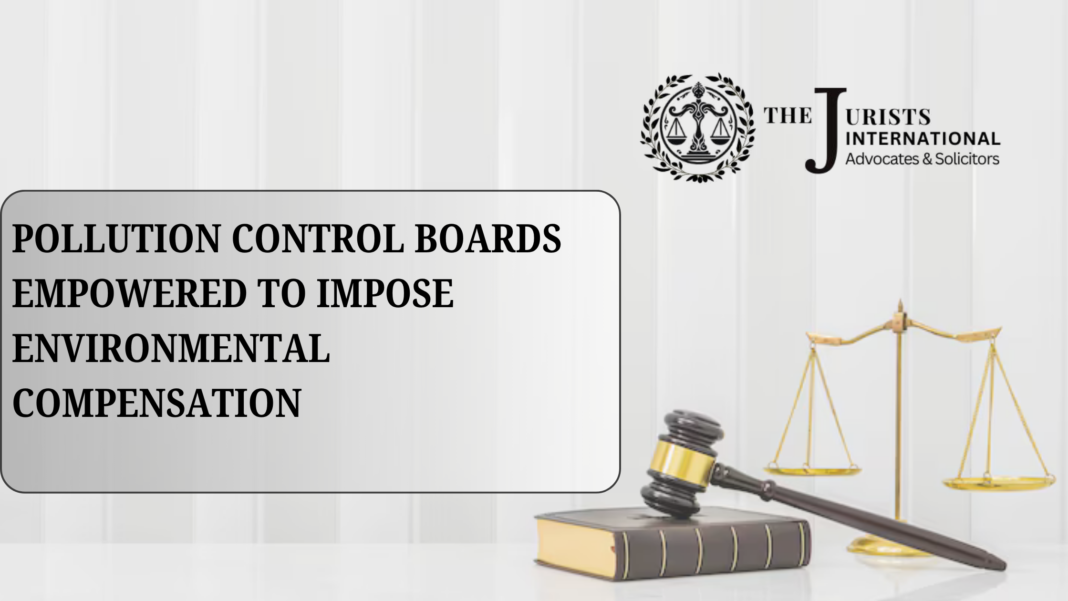In a watershed judgment delivered on August 4, 2025, the Supreme Court of India, in the case of Delhi Pollution Control Committee v. Lodhi Property Co. Ltd. & Ors. (2025 LiveLaw (SC) 766), held that State Pollution Control Boards (PCBs) possess statutory authority to impose environmental compensation under Section 33A of the Water Act, 1974 and Section 31A of the Air Act, 1981.
A two‑judge bench of Justices P.S. Narasimha and Manoj Misra overturned a 2012 Delhi High Court ruling that had denied PCBs the power to demand monetary compensation or bank guarantees from entities operating without valid environmental consents. The Supreme Court clarified that such compensation is not punitive but restitutionary or preventive, designed to restore or avert environmental harm.
The Court affirmed that PCBs may, as part of their regulatory mandate, require fixed sums or guarantees when actual or imminent environmental damage is established, not for every technical violation. Citing the foundational environmental jurisprudence of Vellore Citizens Welfare Forum v. Union of India and Indian Council for Enviro-Legal Action v. Union of India (1996), the bench emphasised the Polluter Pays Principle and the courts’ constitutional obligation to enforce it.
Guiding principles laid out by the Court include:
– Clear distinction between compensation (non-punitive) and penal sanctions (subject to judicial procedure).
– Statutory backing through Section 33A (Water Act) and Section 31A (Air Act), analogous to Section 5 of the Environment (Protection) Act, 1986.
– Necessity of subordinate rules to ensure procedural fairness and natural justice before imposing such measures.
This ruling marks a decisive step towards empowering environmental regulators with meaningful tools to enforce compliance and ensure ecosystem restoration. It underscores that regulatory remedies must include deterrent and remedial mechanisms, reinforcing India’s commitment to the environmental rule of law.
Pollution Control Boards Empowered to Impose Environmental Compensation



